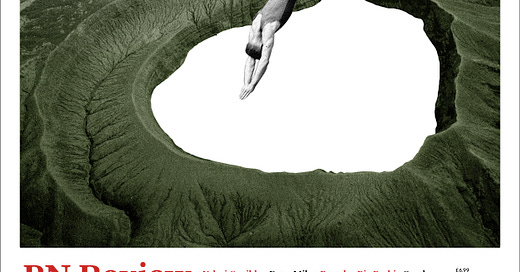Poems by Zewdu Milikit, Alemu Tebeje and Makonnen Wedajeneh, translated by Chris Beckett
PN Review 235, May - June 2017
TRANSLATOR'S NOTE
These are all poets who I have been lucky enough to work with personally in the past few years. They write in Amharic, an inflected Semitic language that is widely spoken by all ethnic groups in Ethiopia (as a first or second tongue) and has lots of plosive consonants and slippery vowels!
Zewdu Milikit is a soft-spoken university lecturer in Gondar, north Ethiopia, a beautiful old city that was once the capital of Solomonic kings. He is a well-known poet who mostly uses traditional six- or twelve-syllable lines, with patterns of internal and end rhyme. As it is still dangerous to criticise the government, Zewdu adapts the old poetic tradition of ‘wax and gold’, i.e. hidden or parallel meanings. So his ‘silly stomach’ is surely a dig at the ruling clique getting fat while ordinary people struggle to survive.
Alemu Tebeje and Makonnen Wedajeneh are both journalists who fell foul of the Ethiopian authorities and became refugees in UK. They live and work in London with their families. Alemu also runs an active human rights website called Debteraw. Although they can be much more open than poets living in Ethiopia, they still treat their subject matter with the same irreverent humour and passion.
Some of Zewdu’s and Alemu’s poems have previously appeared in Modern Poetry in Translation, but for Makonnen this is the first time his work has been published in English.
In the final poem, ‘A good shemma’, a shemma is a traditional woollen shawl worn by Ethiopian men over their normal clothes.
C.B.
ALEMU TEBEJE
O, Western Democracy!
I praise you,
who takes us to Gleneagles
in a warm coach,
so we can stage our protest
against the Butcher of Ethiopia.
You drop us by an empty field
two miles from the hotel,
so even though the Butcher cannot hear,
we are free to hurl our slogans
at the wind:
‘Political plurality!’ we shout
‘Human Rights!’ we cry
The sun is low and it is rather cold.
Policemen stamp their boots.
Some crows hear what we say
and look surprised, they undertake
to carry messages to your conference
where every beak is lapping up
the sweetness of your words,
jabbing at your shortbread promises.
So in the dark, I praise you
for your glistening motorways
of free expression,
your empty fields and willing crows,
for the dry biscuits you feed to monsters.
If you are engaged by what you read on our free Substack, do consider subscribing to the magazine. Like all independent literary magazines, PN Review relies on paid subscribers to survive. Subscribers have access to our entire fifty year archive, plus six new issues per year, in print and digital form.
ZEWDU MILIKIT
My silly stomach
So I can feel how big he is,
he starves my fingers,
leans my toes
and fills my chest with feathers.
He even shrinks my skull
into a little gourd and boasts
he is by far the best
of stomachs in the world,
stands there pleased as punch
to be a silly paunch.
I am my son’s son now
Everything holds its opposite: I laugh now when I cry,
I hold you close, my son who has created me.
You who are not short or tall, but both; not day
or dark, but dawn, and always on the move, but still;
who are the sugar-sour, pretty-rough, the adult boy
I keep away from people, store you in my heart;
my rain-dry and my hunger-fat, the one I miss
in numbers much too large to count.
Be always at my side, my son, close to my front door,
walk with me as my walking stick, and father me.
Take the hopes you took from your own father’s head
and play them back to me, and play them back.
MAKONNEN WODAJENEH
The Onion
I start to cut the onion with a knife.
It is defenceless
and I am intent to fry it in a pan
and then to simmer it
until I’ve made a tasty sauce
that satisfies my endless appetite.
I never give a thought to onions’ suffering.
But straight away the onion shouts
its version of the universal
struggle for democracy,
calling all its natural defences into play
to spray a burning vapour in my eyes.
Look! a grown man wiping tears away.
I clutch the knife
and mask the coward that I really am
with Action Man – slish! slash!
the onion screams and falls
to pieces under a thousand cuts.
But the time will come, I know, for me to pay.
These poems by are taken from PN Review 235, May - June 2017. One more poem from Makonnen Wodajeneh is included in the issue, as well as all the poems in the original Amharic. Further translations by Beckett are available in the archive to paying subscribers, as well as more poetry, features, reviews and reports from across the back catalogue.
The poetry anthology Song We Learn from Trees, published by Carcanet in May 2020, is the very first anthology of Ethiopian poetry in English, packed with all the energy, wit and heartache of a beautiful country and language. A finalist for the 2021 Glenna Luschei Prize for African Poetry, it was edited and translated by Chris Beckett and Alemu Tebeje, and features poetry from all of the writers above. The virtual launch tour of the book can be found on this Youtube playlist.
The anthology features folk and religious poems, warrior boasts, praises of women and kings and modern plumbing; through a flowering of literary poets in the twentieth century, right up to thirty of the most exciting contemporary Amharic poets working both inside and outside the country. These poems ask what it means to be Ethiopian today; part of a young fast-growing economy, heirs to the one African state which was never colonised, but beset by deep political, ethnic and moral problems.




